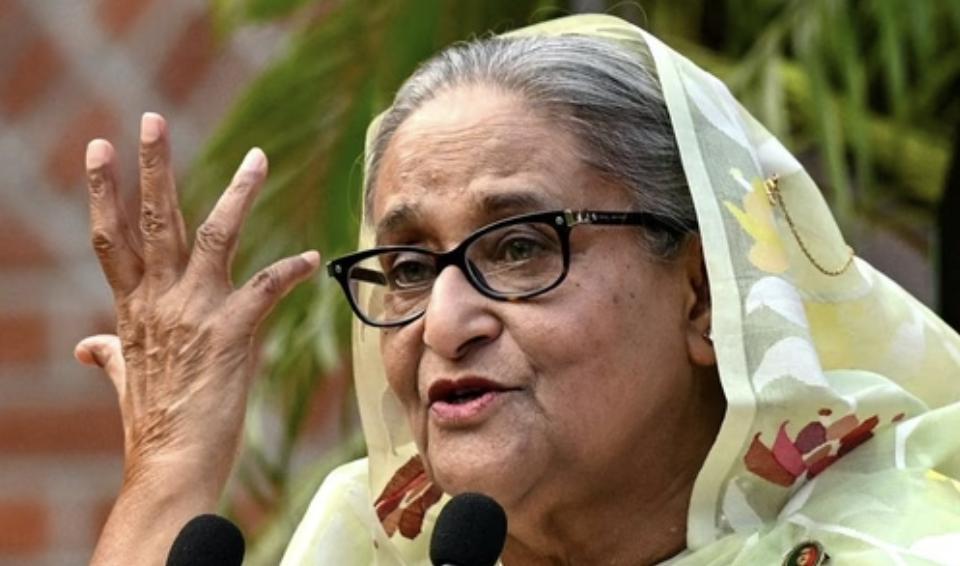
Sheikh Hasina, aide get show-cause notice in contempt case
Bangladesh’s International Crimes Tribunal has issued a show-cause notice to former Prime Minister Sheikh Hasina and her aide in a contempt of court case, following a forensic report on an audio clip in which Hasina is heard saying, “I have received a licence to kill 227 people”. The notice has been issued as the tribunal has deemed the statement to be a serious threat to the court’s authority.
The show-cause notice is a formal warning given to the individuals to explain why they should not be held in contempt of court. In this case, Hasina and her aide, Tofail Ahmed, have been given until May 15 to respond to the notice. If they fail to do so, the tribunal may proceed with contempt proceedings against them.
The audio clip in question is believed to have been recorded during Hasina’s tenure as Prime Minister, between 2009 and 2014. The clip allegedly shows Hasina threatening to kill 227 people, although the identities of the individuals and the context in which she made the statement are not clear.
The tribunal’s decision to issue a show-cause notice follows an investigation into the authenticity of the audio clip. A forensic report conducted by a team of experts found that the clip was genuine and that Hasina’s voice was indeed on the recording.
The International Crimes Tribunal was established in 2010 to try individuals accused of committing crimes during Bangladesh’s 1971 war of independence. The tribunal has been criticized by human rights groups for its lack of transparency and due process, and has been accused of being used as a tool to silence political opponents.
Hasina, who is the current Prime Minister of Bangladesh, has been a key figure in the country’s politics for many years. She was the daughter of Bangladesh’s founding leader, Sheikh Mujibur Rahman, and has been involved in politics since a young age. She has been accused of various human rights abuses and has been criticized for her government’s treatment of opposition politicians and activists.
Tofail Ahmed, Hasina’s aide and the second individual to be issued a show-cause notice, is a close associate of the former Prime Minister. He has been involved in politics for many years and has held various positions within the ruling Awami League party.
The show-cause notice issued by the International Crimes Tribunal is a significant development in the case, as it suggests that the tribunal is taking the matter seriously. The notice is a formal warning to Hasina and Ahmed that they are being accused of contempt of court and that they must respond to the allegations by May 15.
In a statement, the tribunal said that the show-cause notice had been issued “in view of the gravity of the allegations” contained in the forensic report. The tribunal added that it was “necessary to take cognizance” of the allegations and to ensure that the court’s authority was maintained.
The decision to issue a show-cause notice has been welcomed by many in Bangladesh, who have long called for accountability for human rights abuses and corruption. The opposition Bangladesh Nationalist Party (BNP) has also welcomed the development, saying that it is a “victory for justice and democracy”.
However, the ruling Awami League party has been quick to deny any wrongdoing and has accused the opposition of trying to destabilize the government. The party has also claimed that the audio clip is fake and that it is being used as a tool to discredit Hasina and her government.
The controversy surrounding the audio clip and the show-cause notice issued by the International Crimes Tribunal is just the latest in a long history of political tensions and instability in Bangladesh. The country has been plagued by political violence and corruption for many years, and has struggled to establish a stable and democratic government.
As the situation continues to unfold, many in Bangladesh are hoping that the controversy will lead to greater accountability and transparency in the country’s politics. The International Crimes Tribunal’s decision to issue a show-cause notice is a significant step in this direction, and could potentially lead to greater justice and accountability for those who have committed human rights abuses.



